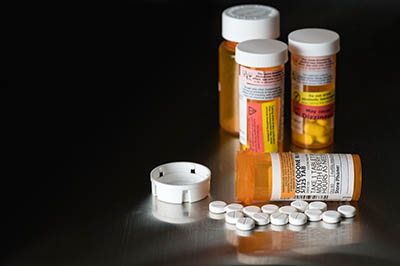The federal government has hired 300 additional prosecutors and created the Opioid Fraud and Abuse Detection Unit and the Joint Criminal Opioid Darknet Enforcement Team to investigate, uncover, and prosecute the prescribing and dispensing of opioids by healthcare professionals – doctors and pharmacists – as well as street-level sales of opioids and fentanyl. Since January 2018, over 200 doctors have been charged.
What are the agents and prosecutors looking for in these cases? They are typically looking for what is referred to as “pill mill” cases, where corrupt doctors write prescriptions to patients they know or should have known are misusing the prescriptions. The pharmacists who fulfill those suspect prescriptions are also frequent targets.
Typically, investigations center on doctors who are suspected of writing prescriptions for large quantities of opioids to individuals that do not medically need them. Investigators look for red flags such as patients traveling from geographically distant locations to the doctor’s office; incomplete or no medical exams to verify alleged pain; a failure to offer alternatives, such as non-opioid based pain management; the absence of a gradual increase from less addictive pain medications to opioids; patients without medical insurance paying cash for each visit; a high number of pills prescribed; and doctors who write and fill the prescriptions themselves for cash.
With regard to pharmacists, investigators look for red flags such as prescriptions with unusually high quantities or that have evidence of alteration; patients traveling far distances to the pharmacy or the prescribing doctor; patients paying with cash for their prescriptions; a high percentage of opioid prescriptions filled; and prescriptions sent and filled from suspect doctors.
In addition to these red flags, every state but Missouri has Prescription Drug Monitoring Programs (PDMP). These programs monitor and track information submitted by doctors and pharmacies about the prescribing and dispensing of controlled substances. They track which doctors give opioid prescriptions, which patients receive the prescriptions, and what pharmacies do the fulfilling. These systems allow for quick and early detection of patterns evidencing possible fraud or abuse.
Given that many doctors and national chain pharmacies have greatly limited their prescribing and dispensing of opioids due to heightened government scrutiny, small independent pharmacies and medical practices have come under enormous pressure to fill a legitimate need for these medications. Along with that need comes the potential for abuse and investigation.
____________________________________________________________________________
Stahl Gasiorowski Criminal Defense has successfully represented many doctors and pharmacists under investigation by the DEA, state investigators, and licensing boards. To contact the firm, call 908.301.9001 for the NJ office and 212.755.3300 for the NYC office, or email Mr. Stahl at rgs@sgdefenselaw.com.




Leave A Comment